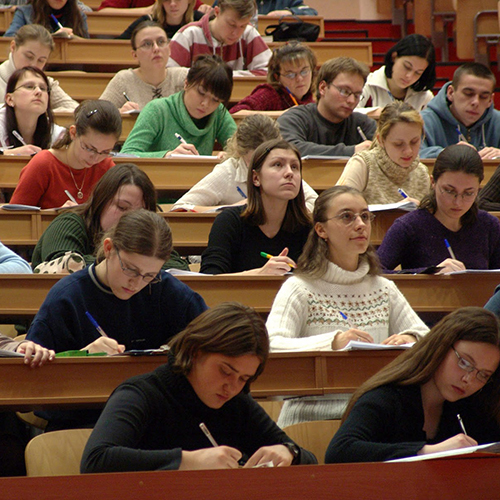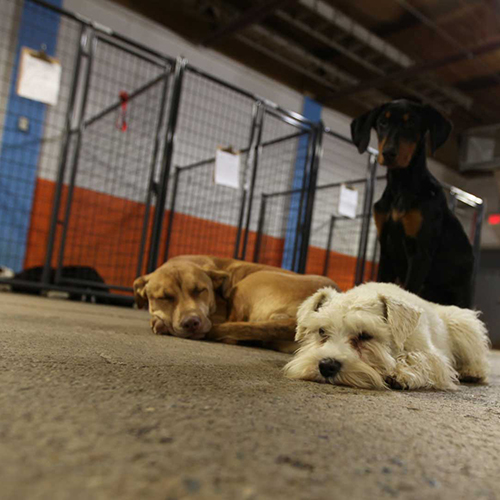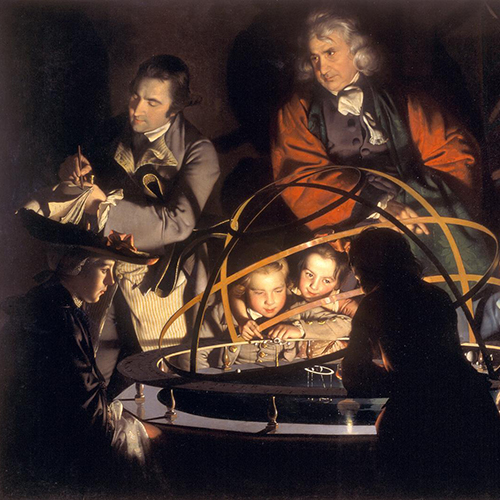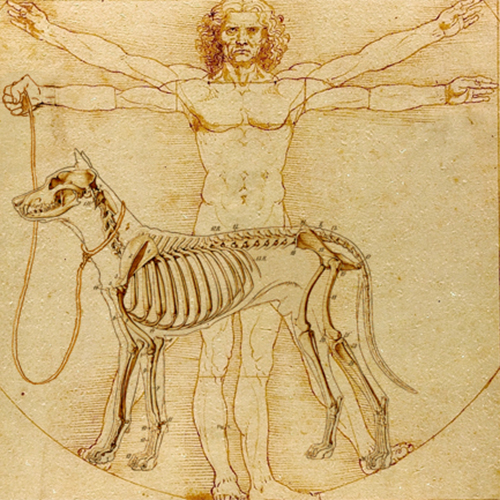
Funded Projects 2014-2015

Patient Adherence and Hospital Readmission After Orthopedic Surgery
(Co-Sponsored with CFIR: Sparrow/MSU Center for Innovation and Research)
Hospital readmissions greatly concern healthcare officials at national, state, and local levels, because they are both costly and reflective of substandard performance. What causes patients to be readmitted to hospitals? How can the number of readmissions be reduced? Readmission generally hinges upon compliance with post-hospitalization recovery routines, which is a particular concern for patients who have undergone orthopedic surgeries. Patients receiving orthopedic procedures, like others, vary greatly in their level of adherence to prescribed regimen. We know little about why some of these patients accept doctors’ authority, and why others don’t. In this project, we will consider this variation using a sociological framework and a mixed methods approach. In particular, we will study if and how the likelihood of patients adhering to prescribed regimens or being readmitted is associated with factors such as: how patients perceive and relate to their surgeons, patients’ demographic characteristics, and patients’ access to economic resources and post-hospitalization social networks.
Team Members
Daniel Menchik – mench@msu.edu – Lyman Briggs College
Brian McCardel – brianmccardel@gmail.com – Sparrow Department of Orthopedics, MSU College of Human Medicine
Terry Rose – Terry.Rose@sparrow.org – Sparrow Department of Patient Experiences
Brigette Kieft – Brigette.Kieft@sparrow.org – Sparrow Department of Patient Experiences
Melissa Sherry – Melissa.Sherry@sparrow.org – Sparrow Department of Volunteer Services

Interdisciplinary Studies in Literary Cognition: Bridging STEM and the Humanities
Our collaboration will develop two new projects derived from an unexpected finding in data from team leader Professor Phillips’ experiment in literary neuroscience, an fMRI study of literary Ph.D. candidates reading Jane Austen: that participants were quoting extensively from Austen’s text by memory in their post-scan essays. The first initiative will seek to connect quoting trends in participants’ essays to narrative patterns in Mansfield Park as well as patterns of attention revealed by our fMRI-compatible eye tracking (Professor Ross). Our team will also use this eye tracking data to pinpoint specific moments of attention as subjects read, linking these moments back to our neuroscientific data. Second, we will extend this methodology for integrating fMRI and fMRI-compatible eye tracking (as well as our computational models for predicting neural responses) to a collaborative global initiative with NYU on the neuroaesthetics of poetry, exploring how attention shifts when reading a sonnet (organized by rhythm, meter, and rhyme) as opposed to fictional narrative.
Team Members
Natalie M. Phillips – nmp@msu.edu – Department of English, College of Arts and Letters
Arun Ross – rossarun@cse.msu.edu – Department of Computer Science, College of Engineering
Devin McAuley – dmcauley@msu.edu – Department of Psychology, College of Social Science

Designing, developing and assessing a module-based system of interdisciplinary education
There has been a call for the inclusion of interdisciplinary learning in higher education for more than a decade, based in part on the assumption that a cross-discipline, integrated learning approach fosters advanced problem solving skills, linked to critical thinking abilities in students. Strong theoretical argumentation exists in support of this, though strong empirical support is lacking. We propose an innovative, model for faculty to engage students in interdisciplinary learning opportunities. We will design, develop, and test interdisciplinary curricular modules that students will study across the breadth of gateway STEM course curriculum. In each STEM gateway course, students will study a set of phenomena from unique disciplinary perspectives. Once students have taken introductory Biology, Physics, Chemistry, Mathematics and HPS (history and philosophy of science), they will have explored this set of phenomena through five different disciplinary lenses. Throughout this project, we will test the claim that interdisciplinary learning improves critical thinking and advanced problem solving skills. These potential benefits of interdisciplinary learning notwithstanding, there is a deficit of interdisciplinary learning models in higher education suitable for implementation in traditional disciplinary contexts. Our project will address this deficit and will produce ready-to-use interdisciplinary curricular materials for gateway science and social science courses.
Team Members
Peter White – pwhite@msu.edu – Lyman Briggs College and The Department of Entomology, College of Natural Science
Vashti Sawtelle – vashtis@msu.edu – Lyman Briggs College and The Department of Physics, College of Natural Science
Rebecca Lahr – rlahr@msu.edu – Lyman Briggs College and The Department of Civil and Environmental Engineering, College of Engineering
Sean Valles – valles@msu.edu – Lyman Briggs College and The Department of Philosophy, College of Arts and Letters
Heng Wang – hengwang@stt.msu.edu – Lyman Briggs College and The Department of Statistics and Probability, College of Natural Science
Sara Fingal – sfingal@msu.edu – Lyman Briggs College and The Department of History, College of Social Science

Conceptions of Good Science in a Data-Rich World
Like many fields of science, ecology matured as a science during a time period (the twentieth century) with very different technologies and methodologies than we have today. Many of ecology’s established practices and norms developed within the constraints of science of that time, including a) high cost of publishing, b) small sample sizes and the statistics to account for small sample sizes, c) the need to differentiate the maturing science from its largely-descriptive beginnings, d) limited to no data sharing, and e) limited to no computing for data analysis. Not surprisingly, the current research landscape related to all of these factors is vastly different, even from just 20-30 years ago. And yet, it appears that the research norms related to publication and funding, statistics and inference, and data analysis are lagging behind the changing realities of doing science in a data-intensive era. Therefore, we request funds to collect data on published ecological studies to show evidence that the science is changing such that we need to revisit established norms and practices. In future research projects, we propose to identify the key challenges and limitations of current scientific practices for data-intensive ecological research. We expect to find that ecological science is changing related to data analysis, statistics, hypothesis-testing, and publication models; all of which have important implications for how ecological science gets done, is used to inform environmental policy, and ultimately how it is communicated to the public and policymakers.
Team Members
Patricia A. Soranno – soranno@anr.msu.edu – Department of Fisheries and Wildlife, College of Agriculture and Natural Resources (CANR)
Kevin C. Elliott – kce@msu.edu, Lyman Briggs College – [joint, Department of Philosophy (CAL), and Department of Fisheries and Wildlife, (CANR)]
Pang-Ning Tan – ptan@cse.msu.edu – Department of Computer Science and Engineering, College of Engineering
Kendra Spence Cheruvelil – ksc@msu.edu – Lyman Briggs College, Department of Fisheries and Wildlife, (CANR)
Georgina M. Montgomery – montg165@msu.edu – Lyman Briggs College, Department of History, College of Social Science

The Changing Face of Urban Ecosystems in Legacy Cities: Cultural Construction of Risk From Roaming Dogs
Roaming dogs are a recent phenomenon for U.S. cities. Deindustrialization and population loss in places such as Detroit have had significant effects on urban ecosystems causing “greening” with abandoned land reverting to prairie. This, along with numerous abandoned buildings, has changed the nature of urban wildlife. Stray and feral dogs are an increasingly common sight in many cities around the world; estimates of such dogs in Detroit have ranged from 8,000 to 50,000. This interdisciplinary project represents a first-of-its-kind exploration of the cultural construction of risk of roaming dogs in urban settings. By matching science studies faculty with STEM researchers it brings the topical and methodological research expertise of STEM to bear on problems with broader social impacts.
Because of the lack of academic research on roaming dogs as a marker of urban ecosystem change, the findings are urgently needed to address an emerging social, health and ethical problem that requires the balancing of science methodologies with the humane treatment of animals within the context of limited societal resources. In addition to testing an innovative interdisciplinary theory, the project will contribute positive societal outcomes setting the stage for the development of policies to reduce the risks associated with roaming dogs thus safeguarding the health of residents, the larger wildlife environment, and the dogs themselves. This new project will allow scientists and policy-makers to implement more effective policies in a rapidly changing environment by focusing on problem hotspots. The project will serve as the basis of an as yet unfunded new cooperation between a team of MSU researchers that cross STEM and social science disciplines and will allow for the collection of pilot data to support proposals for submission to NIH and NSF.
Team Members
Laura Reese – reesela@msu.edu – Global Urban Studies Department, College of Social Science
Meredith Gore – gorem@msu.edu – Fisheries & Wildlife Department, College of Social Science
Brian Maurer – Brian.Maurer@cstat.msu.edu – Fisheries & Wildlife Department, College of Social Science
Jesenia Pizarro – pizarros@msu.edu – Criminal Justice Department, College of Social Science
Melinda Wilkins – wilkinsm@msu.edu – Large Animal Clinical Sciences, College of Veterinary Medicine
Maria Iliopoulou – iliopoul@gmail.com – Veterinary Medicine Dean, College of Veterinary Medicine
Dave Favre – favre@law.msu.edu – College of Law

From the Asylum to the Lab Bench: Fostering LGBTQ Inclusion in STEM Disciplines Today
The goal of this collaboration is twofold: to educate the public about the importance of diversity in the sciences, and to encourage greater inclusion for sexual minorities in STEM disciplines. A growing body of academic literature demonstrates that the stigma and discrimination faced by LGBTQ individuals deters some of them from pursuing careers in STEM disciplines; moreover, sexual minorities tend to be “invisible” members of the scientific community, especially when compared to other minority groups. While inclusion and diversity are topics of increasing prominence in conversations within and around STEM disciplines, the challenges faced and overcome by sexual minorities remain little-discussed. This collaboration will produce materials—including a museum exhibit and a collection of online resources—designed to engage a wide audience with the problems and opportunities surrounding the inclusion of LGBTQ individuals in modern STEM disciplines.
Team Members
Mark Waddell – waddellm@msu.edu – Lyman Briggs College and Department of History, College of Social Science
Cindy Jordan – jordancy@msu.edu – Department of Neuroscience, College of Natural Science
Marc Breedlove – breedsm@msu.edu – Department of Neuroscience, College of Natural Science
Naoko Wake – wake@msu.edu – Lyman Briggs College and Department of History, College of Social Science
Julie Fick – jfick@msu.edu – MSU Museum

Engineering Ethics in Tunisia
To establish a functional relationship between MSU and two institutions of higher education in Tunisia (The National School of Engineers at Tunis, ENIT, and Polytechnic School of Tunisia, EPT) in order to provide a conduit for students and faculty to move between the U.S and Tunisia for education and research. The project has 4 main objectives: 1) Attract engineering students from Tunisia to MSU’s College of Engineering, which will increase the college’s diversity and open opportunities for talented Tunisian students; 2) Re-establish an English-language MS program in Computational Mechanics that teaches engineering ethics to Tunisia students; 3) Open opportunities for MSU faculty to visit, teach, and research in Tunisia and for MSU students to study in Tunisia through the establishment of a study abroad program; and 4) Fund all of these initiatives by establishing closer relationships between MSU and the U.S. Embassy in Tunisia and by soliciting support from the U.S.A.I.D. and NSF.
Team Members
Waseem El-Rayes – elrayes@msu.edu – James Madison College
Karim Chatti – chatti@egr.msu.edu – Civil and Environmental Engineering
Mark Largent – Largent@msu.edu – Lyman Briggs College and James Madison College
Tobin Craig – craigt@msu.edu – James Madison College

Epistemology and the Institutional Change Needed to Facilitate Interdisciplinary Research
We propose to integrate epistemology (study of the limits and validity of knowledge) with institutional change theory in order to develop a conceptual model for interdisciplinary exclusion and how it can be overcome. Using our preliminary understanding of this model to date, we hypothesize that common ground will be found by highlighting the fundamental epistemology that is common to all human thought. For self-understanding, the disciplines need to develop knowledge perspectives from outside themselves. We know of no source that compiles a generalized but detailed modern epistemology in an assessable format, so we propose to create tools that highlight the fundamental assumptions of perception, consciousness, representation and knowledge in the physical sciences, social sciences, and the humanities. Such teaching/learning tools could then be used to facilitate interdisciplinary understanding from elementary school to graduate school and faculty collaboration.
Team Members
Brian J. Teppen – teppen@msu.edu – Department of Plant, Soil, and Microbial Science, (CANR)
Kristie Dotson – dotsonk@msu.edu – Department of Philosophy and Columbia Law School, College of Arts and Letters
Michael O’Rouke – orouk51@msu.edu – Department of Philosophy, College of Arts and Letters

Exploring Values in One Health Research
This project aims to explore values in interdisciplinary One Health research through the use of instruments and interventions designed to improve cross-disciplinary collaboration. Planned activities and outcomes include two workshops, a white paper on value frameworks for One Health research, and a peer reviewed publication. The workshop will involve researchers from the One Health and Emerging Communication Technologies (OHECT) Collaboration, with the objective of gaining insight into the kinds and roles of values used in their research. The OHECT has effectively developed a common language, research concepts, and a research agenda geared toward the development of inter-institutional partnerships and external funding proposals. We believe that the cross-disciplinary value-based framework resulting from this project will help adequately represent the research values and objectives of each of the disciplines represented in the collaboration.
Team Members
Paul Thompson – thomp64@msu.edu – Department of Philosophy, College of Arts and Letters
Julie Funk – funkj@cvm.msu.edu – College of Veterinary Medicine
Monica List – listmoni@msu.edu – Department of Philosophy, College of Arts and Letters

Promoting Quality and Trust in Industry-Funded Research
The focus of this project is a pressing contemporary social issue: the increasing levels of public skepticism about the trustworthiness of industry-funded research related to policy-relevant topics like climate change, fracking, pharmaceuticals, and industrial chemicals. This is an issue of specific relevance for academic institutions, including MSU, as partnerships with industry and the private sector continue to increase in response to weakening state support for scientific research. With the support of the S3 initiative, we will develop a NSF proposal to study how people’s perceptions of the trustworthiness and procedural fairness of research projects vary depending on the funding structure of the projects. To support this proposal, we will collect pilot data using social scientific experimental procedures to present participants with randomly assigned scenarios that describe one of a range of different funding structures. This methodology will enable us to investigate people’s perceptions of the reliability, trustworthiness, procedural fairness, and policy relevance of the research resulting from these different funding structures. We will also collaborate with the University of Notre Dame’s Reilly Center for Science, Technology, and Values to develop a conference in Fall 2015 titled “The Collaboration Conundrum.” This conference will be geared toward studying previous efforts at industry/NGO collaborative research projects to identify best practices and to determine the issues that merit future research.
Team Members
Kevin Elliott – kce@msu.edu – Lyman Briggs College and Department of Fisheries and Wildlife, (CANR)
John Besley – jbesley@msu.edu – Ellis N. Brandt Chair, Department of Advertising and Public Relations, College of Communication Arts and Sciences
Norbert Kaminski – kamins11@msu.edu – Director, Center of Integrative Toxicology, and Department of Toxicology and Pharmacology, College of Veterinary Medicine
Joe Martin – jdmartin@msu.edu – Lyman Briggs College
Cheryl Murphy – camurphy@msu.edu – Lyman Briggs College and Department of Fisheries and Wildlife, (CANR)
Aaron McCright – mccright@msu.edu – Lyman Briggs College and Department of Sociology, College of Social Science

Using STAR METRICS to Understand and Improve Grant Competitiveness in Engineering
Our project will organize and mine MSU’s STAR METRICS data to better understand the university’s efforts to obtain external grants. The hope is that a pilot program funded jointed by S3, VPRGS, and the College of Engineering will provide the basis for a large-scale grant proposal to the National Science Foundation’s Science of Science and Innovation Policy (SciSIP) program, which is eager to fund projects that advance science and technology policy-relevant research and has long supported a variety of projects that employ STAR METRICS data. Our goal is to develop a limited set of computer-based tools to analyze our institution’s data, then apply to NSF’s SciSIP for funds to expand the tool set and engage other institutions through a conference at MSU.
Team Members
Michael Colaresi – colaresi@msu.edu – Political Science, College of Social Science
John Verboncoeur – johnv@msu.edu – Associate Dean, College of Engineering
Mark Largent – largent@msu.edu – Associate Dean, Lyman Briggs College
